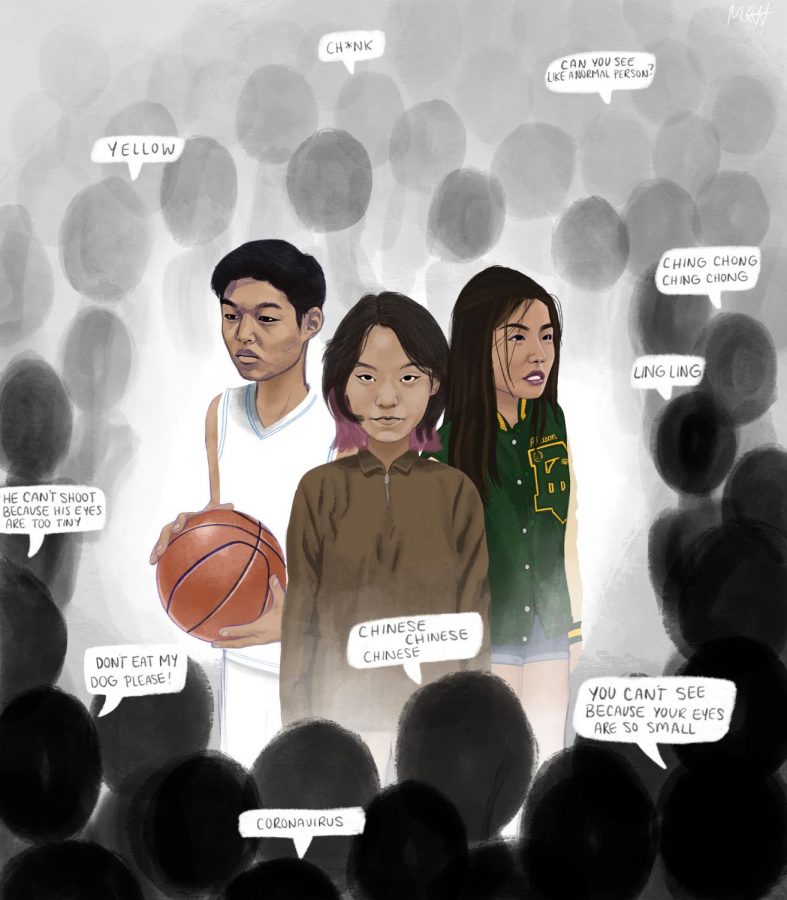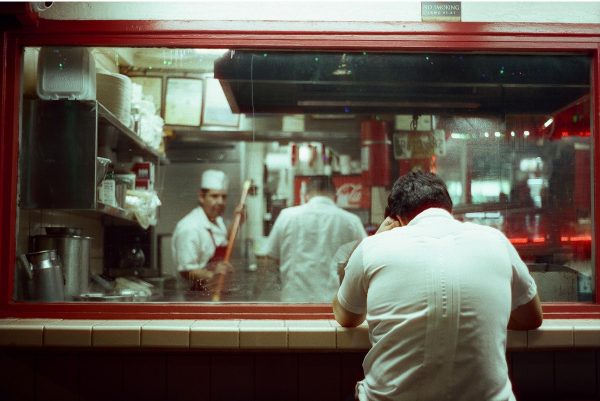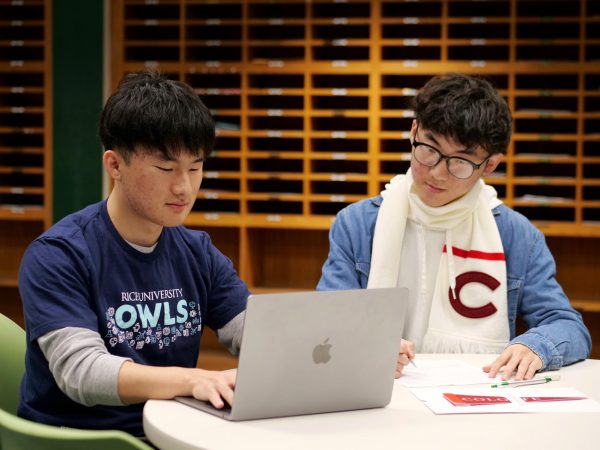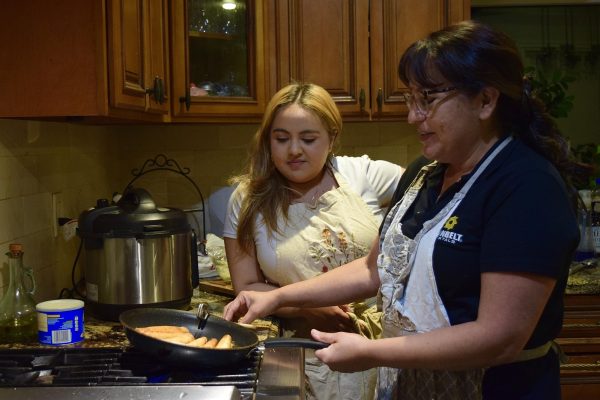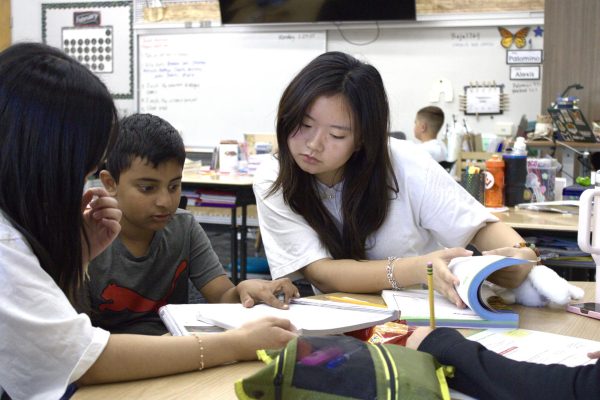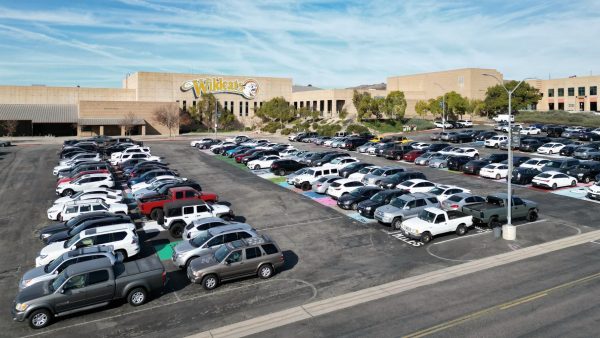A Pandemic of Anti-Asian Violence Hits Close to Home
BOHS students and members of the Wildcat staff are among the victims of a nationwide rise in the verbal and physical assaults of Asian Americans. In 2021, Orange County alone has experienced a 1200% increase in incidents of anti-Asian hate.
Two years ago, while sitting in math class and chatting with friends after the days’ assignment was complete, I was approached by a classmate.
“Ching chong, ching chong,” the boy chanted, his fingers pulling his eyes back into slants.
“Are you Chinese?” he asked me.
“No, I’m Korean,” I replied.
I was offended by the generalization, and I felt uncomfortable from the sudden attention, the stereotyping, and the mockery. In fear of being deemed “sensitive,” I laughed off the insults and tried to move on with my day.
The experience, while hurtful, doesn’t compare to the many incidents of violence against Asian Americans that have occurred in the past few months. There has been an abundance of videos, photos, and testimonies of Asian Americans encountering racism-fueled violence while doing everyday tasks like walking down the street, commuting in the subway, and even simply standing on a street corner.
The assaults are happening nationwide. A shooting in Atlanta at three different massage parlors by a 21-year-old white man that resulted in eight deaths, including six women of Asian descent, on March 16 sparked national discourse about violence against Asian Americans. Also topping national headlines was the assault of Narayange Bodhi, a 68-year-old Sri Lanken grandfather who was attacked while riding a subway to his workplace in New York. The assault left him shaken and bloodied. While pummeling Bodhi, the assailant shouted, “You Asian motherf****r,” according to a witness to the attack.
In March 2020, in California alone, there were 832 incidents reported of “COVID–19–related discrimination and harassment.” One year later, in March 2021, there were 3,795 incidents.
With one of the largest Asian American populations in the U.S., Orange County has also seen an increase in racism-fueled incidents. From March to April of this year, there were 34 reports of racist acts, “such as the distribution of racist fliers and yelling racial epithets, and one hate crime,” according to The Orange County Register.
Another recent report cites a 1200% increase of incidents of anti-Asian hate in the county.
18-year old Jenna Dupuy, of Korean and Puerto Rican descent, suffered a fractured left shoulder, ankle, concussion, bruises, and scratches, and was called a “North Korean whore” at the Tustin Legacy Skatepark on April 11.
On April 20, an elderly Korean-American couple was punched in the face and knocked down in Santa Ana by an attacker who confessed during a police investigation that the attack was racially motivated.
***
While Brea and BOHS have seemingly avoided physical violence against Asian Americans, members of BOHS’s Asian American population — who make up 20.8% of the student body — have experienced verbal racism and harassment.
“My [non-Asian] friends used to make comments such as, ‘You can’t see because your eyes are small,’ or they would call me nicknames like ‘ling ling,’” Allison Fong, senior, said. “At the time, I knew in the back of my mind that it wasn’t right to call me a name like that but I never said anything about it because I didn’t want to ‘stir the pot.’ I would just let them do it and tell myself, ‘Oh it’s just what friends do: they make fun of you in a playful way but not really with malicious intent.’”
Although Fong tried to brush it off, the comments affected how she felt around her non-Asian friends.
“It made me feel different because I was the only Asian in the group and everyone would laugh when this person would call me names,” Fong said.
When Caleb Kim, junior, stepped onto the court as a member of a Redondo Beach club basketball team, he experienced racist taunts from opponents. During a game his freshman season, a member of the opposing team said to Kim, “He can’t shoot because his eyes are too tiny.” These racist jabs became so pervasive that they led to Kim quitting the sport entirely.
“The players were toxic and I had to deal with comments relating to my race at least once a game. I just got sick of it,” Kim said.
For Erika Yang, freshman, racism often came from teachers, classmates, and people whom she considered her friends.
“They pulled their eyes back, called me ‘ling ling,’ would mock my language, assumed I ate dogs, called me ‘coronavirus,’” said Yang. “It was so normalized that I thought it was okay. Looking back, it was emotionally traumatizing [because] I hated my ethnicity and culture.”
The racist encounters, Yang said, were unprovoked: “I wouldn’t say or do anything and they would make ‘jokes’ even during passing periods, class, and especially at lunch when I would bring Asian food from home.”
When COVID-19 first struck in March 2020, Jae Shim, freshman, faced accusations of “causing COVID-19 and eating dogs.”
“[Before COVID-19 hit] kids in my school would pull their eyes to mock mine chanting ‘Chinese’ as if it was a bad thing. They would come up to me and claim that I’m a danger because I’m from North Korea — I’m not — while mocking my language and calling my skin ‘yellow,’” Shim recalled.
Exposure to racism during adolescence leads to a spike in stress hormones and with persistence, the abuse can lead to “inflammatory reactions” which “predispose individuals to chronic disease,” according to the Official Journal of the American Academy of Pediatrics.
In addition to the toll on the body, the uptick of racism against Asian Americans has created feelings of insecurity and shame.
“I’ve hated being Asian [since elementary school],” Shim said. “I was confused as to why I had to be the target of everyone’s jokes. I turned into this person who obsessed [with[ the idea of being born into a white family. I remember begging my mom to bring me a sandwich like the other kids because if I brought seaweed or kimchi, they would find it ‘gross.’ I began being racist to my own community. Although now I am so proud of my culture and race.”
Yang also experienced feelings of shame. “There were certain times where I wished I was a white girl that everyone seemed to favor,” Yang said. “I feel so bad because it made me feel ashamed of my race when a little girl shouldn’t even be experiencing racism. Now I realized that I am not the problem, they are. I am very proud to be Taiwanese.”
Kristin Kim, freshman, experienced racism as early as elementary school when classmates asked her if she could see like a “normal person.”
“At that moment, I thought, ‘Oh, because my eyes are small,’ and [I] thought they were genuinely curious, but now I realize, what is ‘the normal person,’ supposed to look like? A Caucasian?” Kim wondered.
“I’m upset that I didn’t address the situation and speak up about their insinuation,” Kim acknowledged. “If something like that were to happen to me again I would stand up for myself. I would explain why what they’re saying is wrong and how it made me feel. Now that I’ve realized their true insinuations, I won’t ‘laugh’ along with them.”
In past years, many — like BOHS students Kim, Yang, Fong, and Shim — would have stayed silent after being subjected to hateful, bigoted speech due to the fear of being perceived as being overly sensitive. However, recently, as evidenced by the frequent posting of the #stopasianhate hashtag on social media and the rise of anti-Asian organizations, some Asian Americans have begun to stand up for themselves and call out the perpetrators of hate speech.
“Since [realizing how derogatory the comments were], I have talked to this person about using micro-aggressions like that towards me and how it wasn’t appropriate and then they completely understood,” Fong said.
***
My dad sat me down and asked, “Do you want a taser?”
I replied with a confused “No?” and wondered when I would ever put a taser (a taser!) to use.
I asked him why he would ever think I would need an electroshock weapon.
“The ‘Slap an Asian’ challenge,” he said.
I was even more confused because I had never heard of this “challenge.” My dad explained that “Slap an Asian” is a “prank” where a non-Asian will slap an Asian person whenever they see them. It dawned on me then why he thought I might need a taser: With the rise in hate crimes against the Asian community, my dad was worried that I too would become a victim to this violence.
I gave his offer a second thought and decided that maybe I do need a weapon for my safety — not only as a woman, but as an Asian woman. (A study conducted by Stop AAPI Hate revealed that 68% of the anti-Asian hate crimes in the U.S. have been reported by women.)
Soon after this conversation with my dad, and in the wake of even more instances of anti-Asian violence across the U.S, my parents prohibited me from walking around my neighborhood or swimming in the community pool alone.
I never imagined that there would be a time when I would need to tuck a taser for self-defense into my bag whenever I leave my home simply because I “don’t belong here” in the eyes of racists.
***
On April 22, the U.S. Senate took a step in protecting the Asian American and Pacific Islander (AAPI) community when they passed the COVID-19 Hate Crimes Act which strengthens law enforcement towards hate crimes against the AAPI community.
In the wake of the passing of the bill, Maine Senator Susan Collins, a proponent of the legislation, told NPR News, “Crimes motivated by bias against race, national origin, and other characteristics cannot be tolerated. Our amendment both denounces those acts and marshals additional resources toward addressing and stopping these horrible crimes.”
The COVID-19 pandemic created fear in many forms for many people, but for the Asian community in the U.S., and even right here in Brea, the fear of the coronavirus has been compounded by the fear of another virus: racism-fueled violence and bigotry.
Your donation supports the student journalists at Brea Olinda High School! The contribution will help us purchase equipment, upgrade technology, and cover our annual website hosting costs.
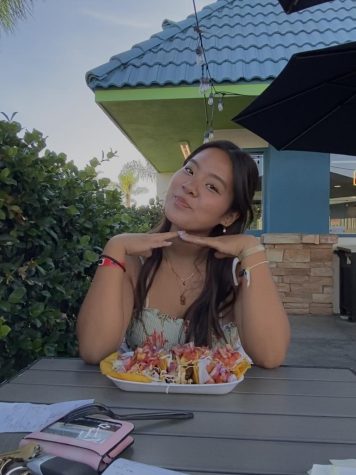
Rachel Lim, senior is excited for her third year on the Wildcat staff. For fun she loves to draw, play the guitar, and workout. In the future she hopes...
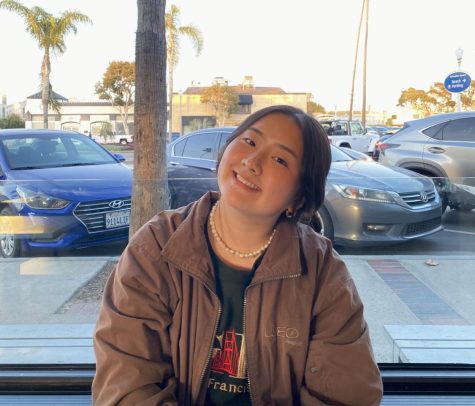
Jasmine Youn is a Wildcat Feature Editor, born and raised from the Bay Area in California. She likes to spend most of her time crocheting, listening to...
Makayla Huerta, senior, is excited for her third year of illustrating for the Wildcat. She spends her days creating artwork, jamming out to music, and...



